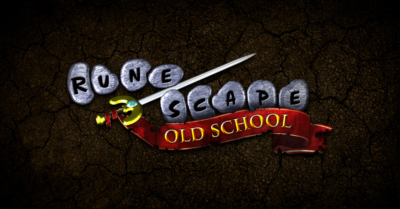The Role of Music in Developing Cognitive Skills and Emotional Intelligence in Children

Music is not just a source of entertainment for children; it is a powerful tool that influences their brain development in profound ways. From birth, children begin absorbing information and developing skills that will shape their future. Music, whether through listening or playing an instrument, plays a crucial role in this developmental process. The impact of music extends beyond enjoyment, contributing to a child’s cognitive abilities, emotional well-being, and physical development.
Incorporating music into a child’s daily life can lead to lasting benefits that support their academic success, emotional resilience, and motor skills. These positive effects are not temporary; they help lay the foundation for a child’s future growth and well-being. This blog will delve into how music contributes to brain development and why it is essential for parents to include music as a part of their child’s routine.
How Music Enhances Memory and Learning in Cognitive Development
The connection between music and cognitive development is well-documented. Research shows that exposure to music, particularly during the early years, can enhance a child’s memory, learning abilities, and concentration. Children who regularly engage with music often have better academic performance, particularly in subjects like math and reading. This happens because music strengthens the brain’s ability to process information, organize thoughts, and retain facts.
Furthermore, musical training, such as learning an instrument, can improve brain functions related to memory and recall. For instance, when a child plays a musical instrument, they are often required to memorize notes and rhythms, which strengthens their memory and concentration skills.
Studies also show that children involved in music develop enhanced spatial-temporal skills, which are essential for understanding mathematical concepts. Parents concerned about their child’s cognitive growth may find it helpful to consult with a childrens doctor to explore how music can support their child’s learning and brain development. By integrating music into a child’s routine, parents can create a stimulating environment that fosters growth in both academic and cognitive areas.
Enhancing Emotional Well-Being Through Music
Music doesn’t just impact a child’s intellectual abilities; it also plays a key role in developing emotional intelligence. From calming lullabies to energetic tunes, music can help children understand and regulate their emotions. Studies show that music can be a tool for emotional expression, allowing children to communicate feelings that they might not yet have the words for. Singing, dancing, and listening to music together can help a child learn about their own emotions and how to manage them in a healthy way.
In addition to individual emotional growth, music also has a positive impact on social skills. Group activities like choir or playing in a band teach children how to collaborate with others, improving teamwork and empathy. These shared experiences help children understand the importance of cooperation and develop stronger interpersonal relationships. For parents seeking advice on how music can contribute to their child’s emotional well-being, consulting a pediatrician near me can provide insights into age-appropriate musical activities that support emotional growth. Music offers an invaluable opportunity for children to connect with their emotions, build resilience, and develop positive social skills.
Strengthening Motor Skills Through Music and Rhythm
Music is also a powerful tool for improving motor skills. From tapping a foot to the beat to playing an instrument, music encourages physical activity that helps children develop both fine and gross motor skills. Activities like dancing or playing the drums promote balance, coordination, and timing, which are essential for physical development. These motor skills are crucial for other activities such as sports, drawing, and writing, helping children gain confidence in their physical abilities.
Furthermore, rhythm-based activities, such as clapping or stepping to the beat, can also improve a child’s sense of timing and coordination. This is particularly beneficial in early childhood when motor skills are still being developed. Research shows that children who engage in musical activities often have better control over their body movements and are more agile than those who do not.
By incorporating music into a child’s daily routine, parents can foster a well-rounded development that includes both cognitive and physical growth. For children experiencing challenges with motor skills, seeking guidance from Long Island pediatricians may help in determining whether music can be a beneficial tool for their development.
The Impact of Music on Enhancing Language and Communication
Music plays a crucial role in language development. The rhythm, melody, and lyrics in songs help children develop the foundational skills necessary for language acquisition, such as listening, memory, and verbal expression. Singing nursery rhymes or listening to songs with repetitive words can enhance a child’s ability to recognize sounds, words, and phrases, which are the building blocks of language. As children become more familiar with these patterns, they are able to apply them to their speech and communication.
In addition, music stimulates areas of the brain responsible for language processing. Research has found that musical training helps children improve their vocabulary, pronunciation, and listening skills. This connection between music and language processing is why music is often used as a tool to teach children new words and concepts.
Parents looking for ways to support their child’s language development might want to consult a children’s doctor to discuss incorporating music into their child’s routine. Music, in this sense, offers not only an enjoyable experience but also a valuable opportunity for enhancing a child’s communication skills.
Music as a Pathway to Cognitive and Emotional Growth for Children
Parents can actively support their child’s cognitive, emotional, and physical development through music by incorporating it into their daily lives. For younger children, singing songs together or listening to music during playtime can stimulate brain activity and improve their cognitive skills.
As children grow older, introducing them to musical instruments or enrolling them in music classes can enhance their learning and motor coordination. Parents can also encourage their children to participate in musical activities like dancing, which supports both physical and emotional development.
It’s important for parents to consider the type of music that best supports their child’s growth. Classical music, for instance, is known for its ability to enhance concentration and cognitive abilities, while rhythmic music can help improve motor skills and coordination. Parents can also expose their children to a wide range of musical genres to foster creativity and emotional expression.
Seeking advice from professionals can provide parents with tailored recommendations on how to integrate music into their child’s development. Ultimately, by encouraging musical activities, parents can help their children grow into well-rounded, emotionally intelligent individuals.
Wrap Up
Music has a profound impact on a child’s brain development, influencing everything from cognitive abilities to emotional health and physical coordination. By integrating music into a child’s daily life, parents can create an enriching environment that fosters growth in multiple areas. Music not only helps with memory, language, and motor skills, but it also promotes emotional intelligence and resilience. Whether through listening to songs, learning an instrument, or engaging in rhythmic activities, music is a powerful tool that parents can use to support their child’s development.
Research Snipers is currently covering all technology news including Google, Apple, Android, Xiaomi, Huawei, Samsung News, and More. Research Snipers has decade of experience in breaking technology news, covering latest trends in tech news, and recent developments.












